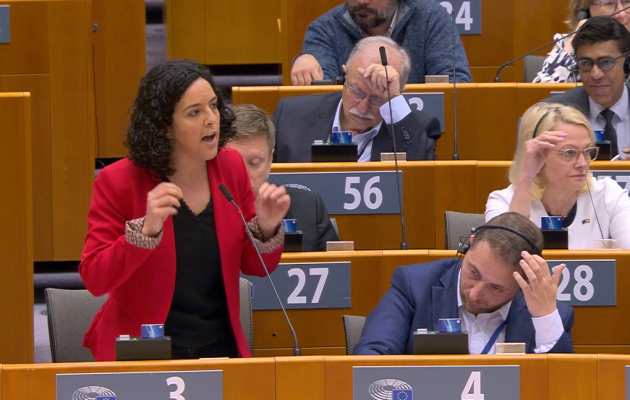Boosted by the decision in France, a majority voted “yes” to include abortion in the EU Charter of Fundamental Rights. But opposition is expected from countries such as Malta, Poland and Hungary.
![Archive image of a recent plenary session of the European Parliament. / Photo: © European Union 2023 – [link]EP[/link], CC-BY-4.0](https://cms.evangelicalfocus.com/upload/imagenes/6617b8b06c78a_53392254467_9628afb5e2_kCropped.jpg) Archive image of a recent plenary session of the European Parliament. / Photo: © European Union 2023 – [link]EP[/link], CC-BY-4.0
Archive image of a recent plenary session of the European Parliament. / Photo: © European Union 2023 – [link]EP[/link], CC-BY-4.0
A majority of the European Parliament voted on 11 April a resolution to make abortion a “right” across the European Union.
With 336 in favour and 163 against, parliamentarians passed a resolution that calls to include abortion in the EU Charter of Fundamental Rights, a 2012 reference document of the European Union setting out the “rights, freedoms and principles recognised” in the member states.
Thursday’s resolution, promoted by the liberal democrats (Renew), social democrats (S&D) and the left, said that “controlling their reproductive lives and decide if, when and how to have children is essential to the full realisation of human rights for women, girls and all persons who can be pregnant”.
They justified their position appealing to some UN documents that call to defend an “individual’s decision to pursue voluntary termination of pregnancy”. But the motion also pointed to France’s recent decision of enshrining abortion in the constitution as an example to be followed, arguing that there is a “need for a European response to the pushback on gender equality”.

[photo_footer]French MEP Manon Aubry, co-chair of the Left group, defends the proposition to include abortion in the EU Charter of Fundamental Rights, at the European Parliament in Brussels, 11 April 2024. / Image: video capture EP. [/photo_footer] The motion approved speaks of “regressive forces and ultra-conservative religious and far right actors” that are “trying to undo decades of human rights advances and impose a harmful world view on gender roles in families and public life”.
The text passed by the European Parliament explicitly criticises some of the EU member states, such as Poland, Malta, Slovakia and Hungary, for having more conservative policies on abortion than the majority. It calls governments in Europe to “make abortion methods and procedures an obligatory part of the curriculum for doctors and medical students”.
Among the Members of the European Parliament who voted against the was Bert‑Jan Ruissen, the representative of the Dutch Protestant SGP party, and said health and medical care matters are the exclusive competence of countries.
In 2022, the European Parliament already passed a non-binding resolution in favour of abortion “condemning” the decision of the United States Supreme Court.
This vote in the European Parliament is not enough to change the EU Charter of Fundamental Rights but is a demand of the legislative chamber to the 27 countries (known as the European Council) to amend the charter.
The resolution passed on 11 April proposes that the Article 3.2a is amended to say: “Everyone has the right to bodily autonomy, to free, informed, full and universal access to sexual and reproductive health and rights, and to all related healthcare services without discrimination, including access to safe and legal abortion”.
This change in the EU Charter of Fundamental Rights would only be possible if all 27 member states agree on it. The governments of countries in which the life of the unborn is most protected, such as Malta, Hungary or Poland, are not expected to give their go-ahead in the near future.
[analysis]
[title]One more year[/title]
[photo][/photo]
[text]At Evangelical Focus, we have a sustainability challenge ahead. We invite you to join those across Europe and beyond who are committed with our mission. Together, we will ensure the continuity of Evangelical Focus and Protestante Digital (Spanish) in 2024.
Learn all about our #OneMoreYearEF campaign here (English).
[/text][/analysis]

Las opiniones vertidas por nuestros colaboradores se realizan a nivel personal, pudiendo coincidir o no con la postura de la dirección de Protestante Digital.
Si quieres comentar o